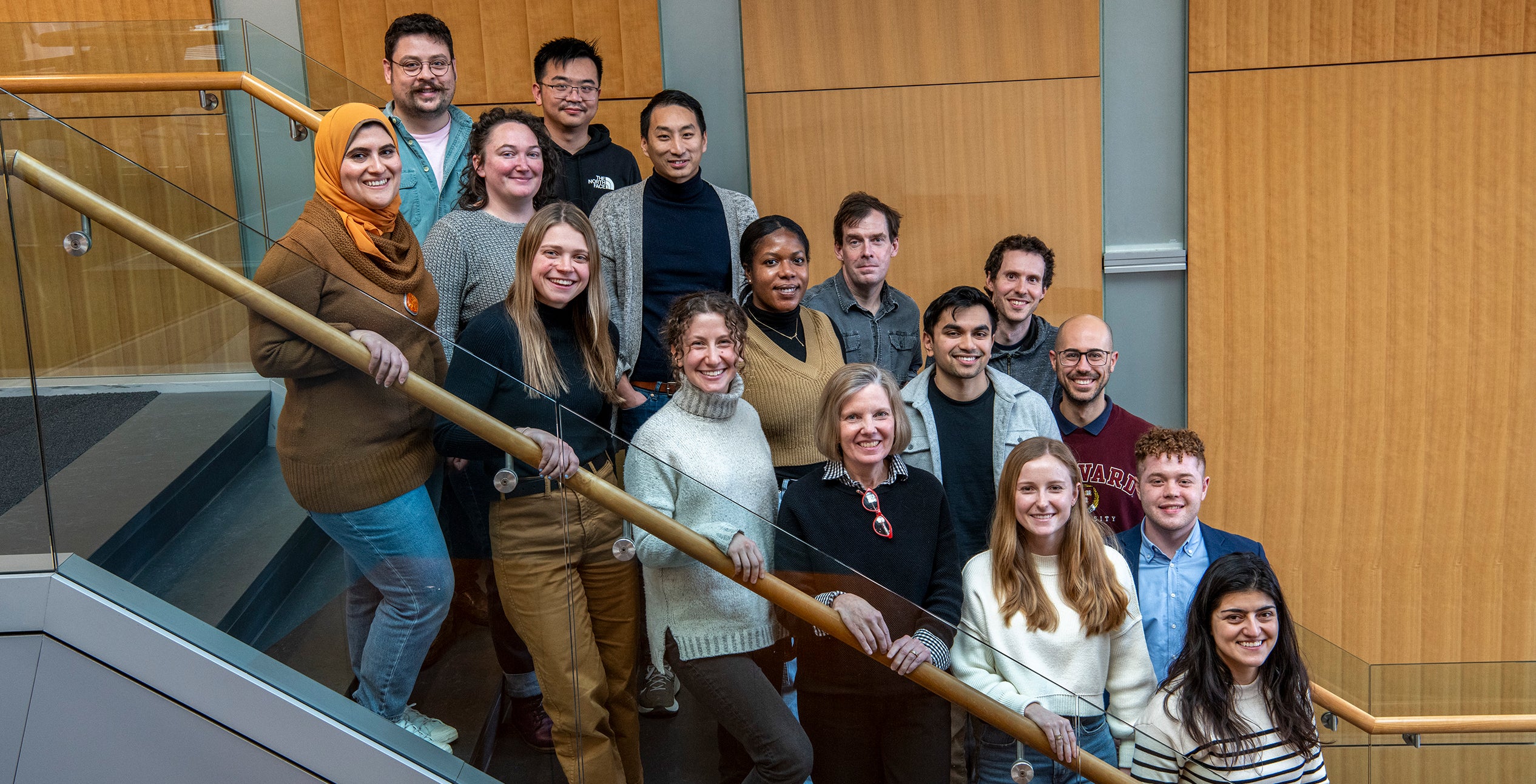Fortune Lab
In the Fortune lab, we seek to understand Tuberculosis (TB), which is caused by the bacterial pathogen Mycobacterium tuberculosis and is the leading cause of death due to an infectious disease. We aim to better understand the bacteria and its interaction with the host with the ultimate goal of one day eradicating TB.
665 Huntington Avenue, Building 1, Room 802
Boston, MA, 02115

About the Fortune Lab
Who We Are, What We Do and Why
Our lab takes a broad approach at tackling the tuberculosis (TB) pandemic which disproportionately affects marginalized communities and causes ~10 million new infections and roughly 1.5M deaths annually. While many people suffer from TB disease, even more of the world’s population is exposed to and even infected with Mycobacterium tuberculosis, the bacterium that causes TB, without getting sick. We aim to understand this heterogeneity–in bacterial populations and host outcomes–to inform the development of new therapeutics, vaccines, and public health strategies. We believe that a complex problem is most effectively tackled by bringing together a diversity of perspectives. Our lab uses bacteriology, immunology, genetics, genomics, computation, clinical medicine, and even a little chemistry to define the determinants of TB outcomes. We are also highly collaborative and work with best-in-class investigators from other fields to bring new advances to the study of TB and to understand how chronic infections like TB shape human health more broadly.

Support Harvard Chan School
Every gift contributes to our mission of building a world where everyone can thrive. To learn more about how you can support The Fortune Lab, please contact Carter Brown.
Our Research
It takes months to treat even drug susceptible Mtb. How are Mtb bacilli so resilient to drug treatment and how does ongoing bacterial evolution affect patient outcomes and our efforts to treat TB? Bacterial genetic variation is an underappreciated driver of variation in tuberculosis disease transmission, progression, and outcomes. Despite this, much of our understanding of Mtb biology is built on a few laboratory strains. To address this discrepancy, we use population genetics and high throughput phenotyping of Mtb isolates to inform bacterial genetics studies. Using these approaches, we’ve linked regulatory networks to drug resistance, identified novel mechanisms of drug tolerance, and linked bacterial variation to disease outcomes. Ongoing work focuses on understanding genetic drivers of currently expanding strains and deep phenotypic characterization of diverse clinical isolates.
We need new and effective vaccines to control the ongoing TB epidemic. To design these life-saving therapeutics we need a deeper understanding of the immune mechanisms that can kill Mtb and prevent TB disease. We use a diverse array of high-throughput profiling techniques, namely single cell RNA sequencing, biophysical and functional serological profiling, multiplexed flow/mass cytometry and myeloid functional dissection, to understand immune. responses to TB in animal models and human cohorts. These data are then integrated within a systems immunology framework to identify novel protective immune signals in different infection or vaccination contexts. This work includes extensive collaborations through our Hi-IMPAcTB consortium. Our findings have identified avenues of crosstalk between key immunological compartments that associate with both good and bad infection outcomes.
Our current TB vaccine does not protect adults against pulmonary TB, and we do not have a great way to test the efficacy of new vaccine candidates. We seek to bridge basic science research with translational studies to solve these problems. In collaboration with Eric Rubin at Harvard School of Public Health, Dirk Schnappinger and Sabine Ehrt at Weill Cornell Medical School, and JoAnne Flynn at the University of Pittsburgh, we leverage multiple strategies to (1) convert virulent Mtb strains into safe strains for a vaccine test model, namely TB Human Challenge Model, and (2) improve BCG with higher protection efficacy and safe use.



Publication highlights
- Antibody-Fab and -Fc features promote Mycobacterium tuberculosis restriction
- Tuberculosis treatment failure associated with evolution of antibiotic resilience
- Identification of bacterial determinants of tuberculosis infection and treatment outcomes: a phenogenomic analysis of clinical strains
- CD8+ lymphocytes are critical for early control of tuberculosis in macaques
- A functional role for antibodies in tuberculosis
- Ongoing evolution of the Mycobacterium tuberculosis lactate dehydrogenase reveals the pleiotropic effects of bacterial adaption to host pressure
Research and Impact
Sarah Fortune on importance of federal funding for science
The silent killer: A paradigm shift in understanding tuberculosis
Sarah Fortune Fortune recently spoke at an event in the Harvard Chan Studio, where panelists discussed how genomic surveillance has revealed that tuberculosis is vastly underdiagnosed around the world.
Confronting the link between climate change and infectious diseases
Disease transmission is closely linked to climate change and warning signs are flashing red. A faculty panel, including Prof. Sarah Fortune, explores the connections and looks at promising approaches for improving pathogen surveillance and reducing the risk of future pandemics
